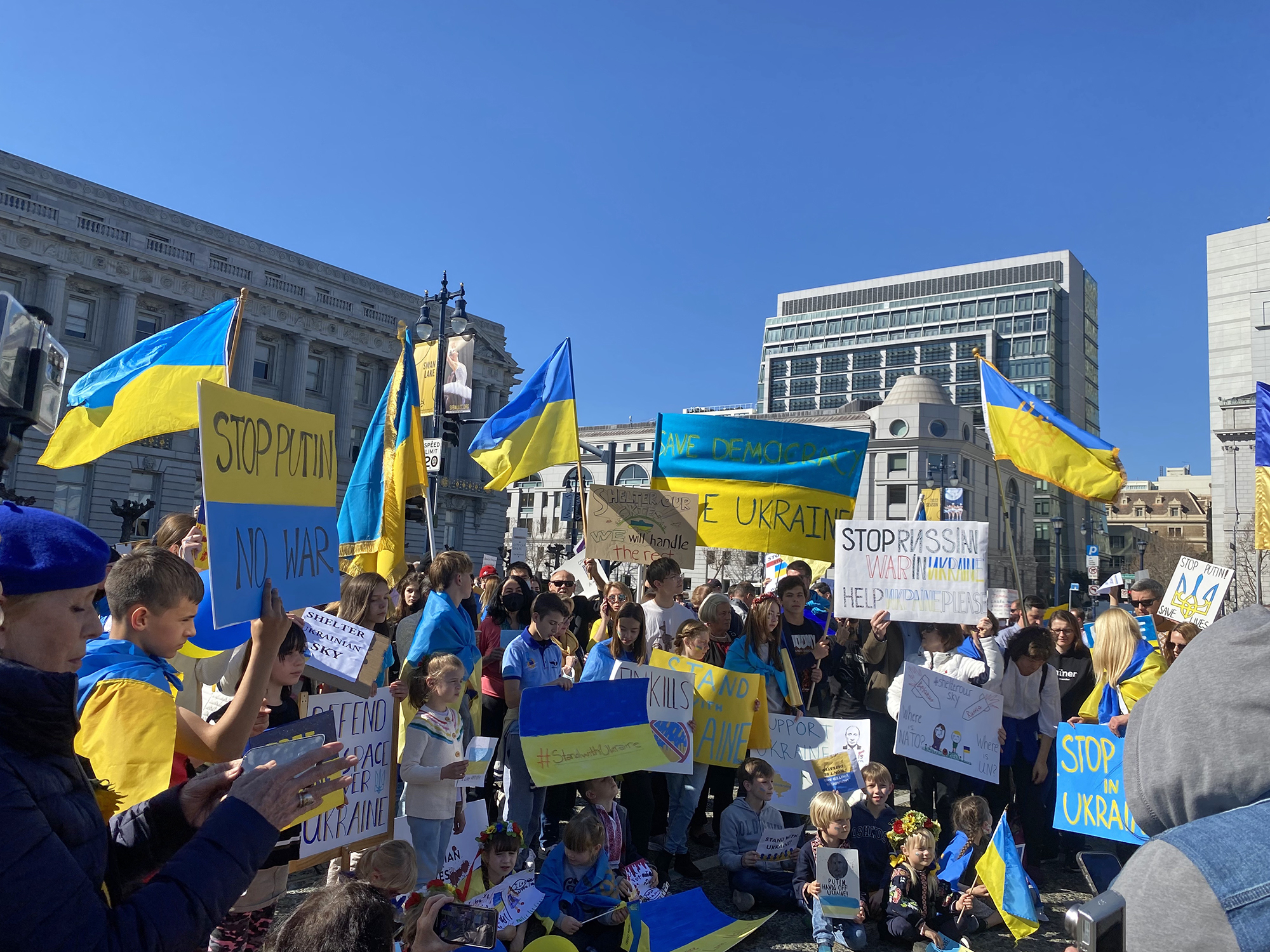For Palo Alto resident Jeannet Kiessling, the crisis in Ukraine that has upended world order in less than a week feels personal.
Kiessling is from Heidelberg, Germany, a sister city of Palo Alto, and for the past decade she has been working with an Austrian organization "kleine herzen" (German for "small hearts"), which builds homes for Ukrainian orphans.
Over the weekend, with Russia's full-scale invasions of Ukraine triggering a wave of refugees, Kiessling and her colleagues at the Neighbors Abroad sprung into action to raise money to buy food, clothing and basic supplies for people fleeing the war. In a little over two days, the group's Ukrainian Emergency Children's Relief Fund has raised more than $15,000 from local donations.
Kiessling, who moved to Palo Alto in 2016, began working on assisting Ukraine orphans more than a decade ago, when she was living in Vienna. She had just quit her job and was looking for a way to devote some of the severance pay she received to support Ukrainian charities. Over the course of her research, she ran across a woman from kleine herzen and they decided to join forces.
Kiessling said the group has held numerous fundraisers to build orphanages. They had published a cookbook with recipes from eastern European cuisines, which netted about $40,000, and a gala that brought in more than $100,000. One donor offered to donate a pre-fabricated house, which the organization accepted and put up in Fastiv, a city southwest of Kyiv. The house now provides shelter for homeless Ukrainian children.
Kleine herzen has been active in Ukraine, Russia and Cambodia. In western Ukraine, the organization had opened a summer home for children from the Chernobyl area. It had built summer camps in cities within the Carpathian Mountains, which stretch from Romania to southwestern Ukraine. These are currently being converted into refugee shelters, Kiessling said.
In 2014, after Russia annexed Crimea and invaded the eastern regions of Donetsk and Luhansk — known as Donbas — the organization created shelters for people fleeing the conflicts in those areas.
Now, kleine herzen is focusing on the crisis that was triggered by Russia's full-scale assault on Ukraine last week. It is raising money to buy supplies to help the hundreds of thousands of Ukranians making their way west to the city Lviv and across the Polish border.
Kiessling said in an interview on Saturday that the organization has been extremely heartened by the response that Neighbors Abroad has received immediately after the relief fund was set up. In just over a day, nearly $10,000 in donations came in (the number has gone up to over $15,000 since then).
"Everyone I've spoken to said to me, 'Give me a link and I'll donate.' This is apparently very close to people's hearts."
Bob Wenzlau, president of Neighbors Abroad, said the effort created an unique opportunity for the local organization to step up and work with Heidelberg, which has a branch of kleine herzen. He said the organization is planning to adapt as the situation in Europe evolves and is looking for ways to get money to Poland to support children as they arrive there.
The effort, he said, has made the Ukraine conflict less abstract and more personal for those working on the effort.
"It's amazing, because normally we don't provide humanitarian support with our first-world sister cities," Wenzlau said of the Heidelberg partnership. "This opportunity came up and I believe we're going to be supporting them indefinitely now."
To donate to the Ukrainian Emergency Children’s Relief Fund, go to flipcause.com.



Comments